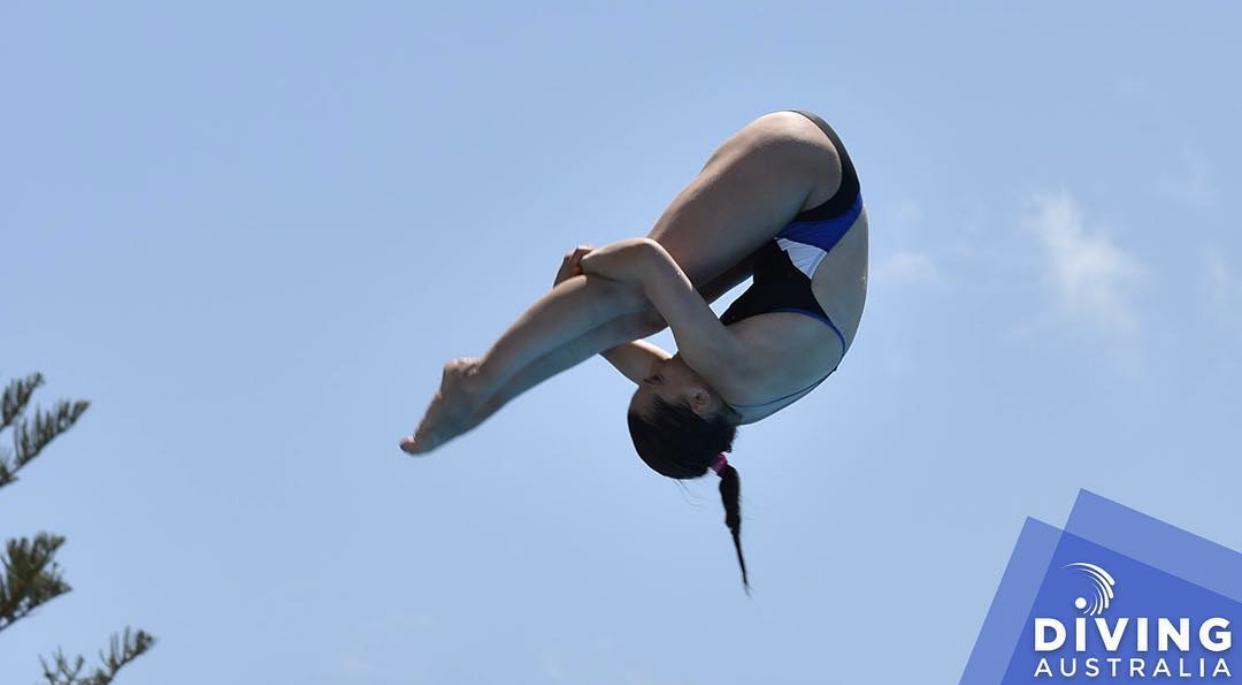Anabelle Smith has competed on the Australian diving team for the past 13 years and has shown immense dedication to her sport. We got to talk with her about how she got into diving, being a dual Olympian, and getting back into training as COVID-19 restrictions are easing.
Smith was an athletic kid and tried her hand at everything from acrobatics to netball. She grew up with a desire to represent Australia at the Olympics but wasn’t entirely sure which sport would take her there. It was at the age of 12 Smith was introduced to diving, and without knowing much about the sport she embraced the challenge of it.
“I had a lot of natural talent and started progressing pretty quickly, so when push came to shove and I was selected for a junior high-performance program, I took the leap and dedicated all my energy and time to diving,” she says.
After finishing school, Smith relocated to Brisbane to join the national program as the next step in her career. While she had to adjust to the new environment, the diver’s passion for her Olympic dream allowed her to thrive.
She recalls; “The first couple of years being away from my family and support network at home was really tough – but it made me organised and independent and taught me resilience.”
Smith went on to represent Australia at the 2010 Commonwealth Games, earning herself a bronze medal and similarly won a bronze medal at the 2011 World Aquatic Championships in Shanghai. After these incredible achievements, she got to fulfil her childhood dream of making it to the 2012 London Olympics.
“London was phenomenal because it was my debut games and my eyes were opened to this world I always dreamed of. Walking by some of my sporting idols like Usain Bolt in the Village was a surreal experience,” she says.
After this life-changing experience, Smith was back at it in training, driven as ever to make it to the next Olympics and to win a medal. With four more years of training and overcoming a severe injury on her middle finger, at the 2016 Games in Rio De Janeiro Smith won a bronze medal in the 3 m springboard synchronised event.
“That brought a whole array of new opportunities and achieving an Olympic medal has made all the tough times across the years absolutely worth it,” she states.
As Smith was heading into her usual competition season, COVID-19 struck. Pools and gyms were forced shut, and she was unable to train for almost 3 months. It was only until early June she was able to once again have access to training facilities.
“To feel unconditioned (in diving movements) and slightly uncoordinated – it’s a tough pill to swallow! It takes years to build up your technique and your body becomes so used to the patterns you execute every day, then to have time off you lose that ability pretty fast!” she explains.
However, she’s optimistic in her return and glad that she can start forming new goals. Smith is eager to be working with her teammates and her coach to reach her peak form.
“Getting back to training means having a bit more purpose again! It has been rewarding to see my teammates again and feeling the buzz of being back at the pool was really nice!”
“I trust my coach to be able to get me back to where I know I can be and the best thing is now we have time on our side, so there is no rush!” she says.
Smith recognises that above all, it’s vital to have patience in these times.
“One of my biggest goals for the next few months is to avoid any chance of an injury. And with such an extended break, that’s a really fine line.”
Like Smith, athletes worldwide are going through similar transitions back to intense training.
She advises to them; “Be kind on yourself. The next couple of months will come with frustrations as you try and head back into your normal routine, but working day by day to regain strength, power or technique will eventually add up. We all just have to be patient and celebrate the little wins along the way!”
Story: Gabrielle Egan, WSA Content Creator
Follow Anabelle’s journey on her blog: https://www.anabellesmith3.com/beingbelle
Image credit: Diving Australia






